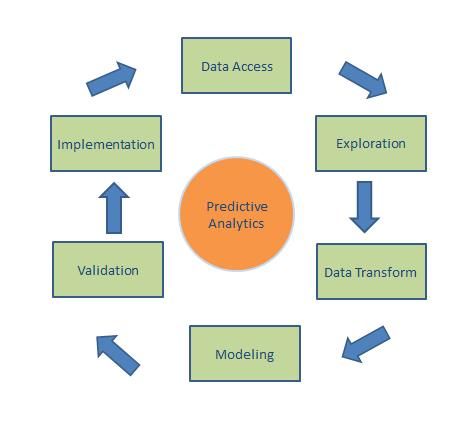
Data Analytics for Smart Decision-Making
admin
- 0
Data analytics has become an essential tool in today’s data-driven world. With the vast amount of information available, organizations need to leverage data analytics to make smart decisions. From businesses to governments, data analytics is transforming the way decisions are made. In this article, we will explore the importance of data analytics and how it can contribute to smart decision-making.
Understanding Data Analytics
Data analytics refers to the process of analyzing and interpreting raw data to gain insights and make informed decisions. It involves collecting, cleaning, and transforming data into actionable information. Data analytics can take various forms, including descriptive, diagnostic, predictive, and prescriptive analytics. Each type serves a different purpose in helping organizations make strategic decisions.
The Role of Data Analytics in Decision-Making
Data analytics plays a crucial role in the decision-making process by providing organizations with valuable insights. Here are some key ways data analytics contributes to smart decision-making:
1. Identifying Trends and Patterns
By analyzing historical data, organizations can identify trends and patterns that can help them understand past performance and predict future outcomes. This information allows decision-makers to make data-driven decisions rather than relying solely on intuition or guesswork.
2. Customer Segmentation
Data analytics helps organizations segment their customers based on various attributes, such as demographics, behavior, and preferences. By understanding customer segments, organizations can tailor their marketing strategies and offerings to meet specific customer needs, resulting in higher customer satisfaction and improved decision-making.
3. Risk Assessment
Data analytics enables organizations to assess and mitigate risks effectively. By analyzing historical data and identifying patterns, organizations can anticipate potential risks and take proactive measures to minimize their impacts. This approach allows decision-makers to make informed choices while considering potential risks and rewards.
4. Optimization of Operations
Data analytics can help organizations optimize their operations by identifying inefficiencies and areas for improvement. By analyzing data related to various operational processes, organizations can make informed decisions to streamline operations, reduce costs, and enhance overall efficiency.
5. Enhanced Decision-Making Speed
Data analytics allows decision-makers to access real-time data and gain insights quickly. This enables organizations to make timely decisions, responding to changing market conditions and opportunities. With faster decision-making, organizations gain a competitive advantage and can better adapt to dynamic environments.
Challenges in Data Analytics for Smart Decision-Making
While data analytics offers significant benefits, it is not without its challenges. Here are some common challenges organizations face while leveraging data analytics for smart decision-making:
1. Data Quality
The accuracy and reliability of the data used for analysis are crucial for making informed decisions. Organizations must ensure that the data they collect and analyze are of high quality and free from errors to avoid misleading insights and inaccurate decision-making.
2. Data Integration
Organizations often have data stored in various systems and formats. Integrating these disparate data sources can be challenging, requiring significant effort and resources. Lack of data integration can hinder effective decision-making by limiting the availability of comprehensive and cohesive insights.
3. Data Security and Privacy
As data analytics involves handling sensitive information, organizations must prioritize data security and privacy. Protecting data from unauthorized access, breaches, and complying with relevant regulations is essential to maintain trust and confidence in the decision-making process.
4. Skill Gap
Data analytics requires expertise in data manipulation, statistical analysis, and the use of relevant tools and technologies. Organizations must invest in training their workforce or hiring skilled data analysts to effectively leverage data analytics for smart decision-making.
Data analytics is revolutionizing the way decisions are made in organizations. From identifying trends and patterns to optimizing operations and enhancing decision-making speed, data analytics provides valuable insights for making informed choices. However, organizations need to overcome challenges such as data quality, integration, security, and skill gaps to ensure successful implementation of data analytics. With the right approach and investments, data analytics can empower organizations to make smart decisions that drive growth, profitability, and success in today’s data-driven world.

